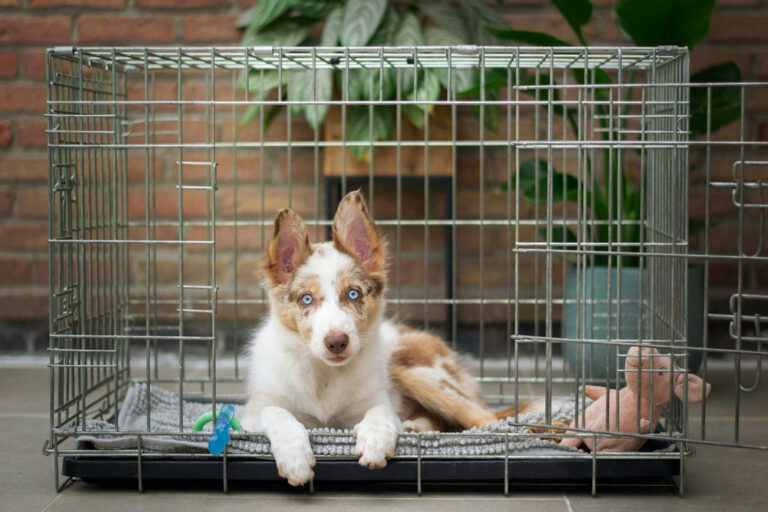Embarking on a journey to the European Union (EU) from the UK with your beloved pet requires thoughtful consideration of various factors. The distinction between these two travel categories can impact the requirements, documentation, and regulations you must adhere to when bringing your pet. Whether you’re relocating, vacationing, or exploring new horizons, grasping the nuances of these two travel categories can influence your pet’s journey. The crucial factor is whether your movement is what is affecting the movement of the pet – this is what you must prove, in order for your pet to be considered non-commercial.
Non-Commercial Travel:
Non-commercial travel involves bringing pets for personal reasons, such as relocation, vacations, or temporary stays. In order to qualify for a non-commercial movement, you (the owner) must fly within 5 days of your pet and be there to collect them when they arrive.
Key Points to Consider:
1. Pet Passport: Since Brexit, a UK issued pet passport can no longer be used for travel to the EU. If you have an EU issued pet passport, this can still be used in the same way as pre-Brexit travel, however a UK vet must not have entered ANY information into this passport, otherwise it is invalid.
2. Animal Health Certificate: Pets travelling non-commercially must have an Animal Health Certificate issued by an authorised veterinarian, within 10 days of travel. This certificate contains details about your pet’s vaccinations, microchips, and other relevant information, meaning you won’t have to quarantine your pet after travelling with you.
3. Microchipping and Vaccinations: Regardless of the purpose of travel, all pets must be microchipped and vaccinated against rabies. The microchip ensures proper identification, while the rabies vaccination safeguards against the spread of this disease. Your pet must wait a clear 21 days from rabies vaccination until they can safely enter the EU.
4. Pet Age Restrictions: Your puppy or kitten will need to have had a rabies vaccination no younger than 12 weeks old, and then complete the 21 day wait before they are allowed to travel.
5. Proof of Travel: You must provide proof of your travel within 5 days of your pet.

For more detail on pet travel and the preparation required, check out: Shipping Pets to Europe: Regulations, Vaccinations, and Preparation.
In advance, check the pet importation standards for your destination, as specific countries may have distinct regulations or requirements in place.
Commercial Travel:
Commercial travel is generally reserved for pets that are moving for financial gain or resale and rehoming. However, your pet may fall into this category for other reasons. If you have more than 5 pets for example, they must travel commercially. Also, if you are rehoming an overseas rescue, you are not planning on travelling within 5 days of your pet, or you are not moving to the EU country permanently, all of these reasons can enforce commercial regulations to apply. Here are some essential points to keep in mind:
Regulations and Requirements:
1. Export Health Certificate: Pets travelling commercially must have an Export Health Certificate issued by an authorised veterinarian, within 48 hours of travel. This certificate contains details about your pet’s vaccinations, microchips, and other relevant information, meaning you won’t have to quarantine your pet after travelling with you.
2. Import Licences: Depending on the nature of your pet transport business, you may need to obtain an import licence or meet specific requirements to legally conduct commercial pet travel.
3. Microchipping and Vaccinations: Regardless of the purpose of travel, all pets must be microchipped and vaccinated against rabies. The microchip ensures proper identification, while the rabies vaccination safeguards against the spread of this disease. Your pet must wait a clear 21 days from rabies vaccination until they can safely enter the EU.
4. Registered Animal Trader: If you are a registered animal trader, you must follow the Balai Directive guidelines and register your business while ensuring compliance with animal welfare standards.
5. Agent Clearance: If your pet travels commercially, you must employ an agent at your destination to complete an online customs process on your behalf. This is costly – usually in the region of £1000.
Whether you’re travelling commercially or non-commercially with your pet from the UK to the EU, compliance with regulations ensures the safety, health, and welfare of your pet and others during the journey. Always consult official sources and experts to ensure you have the most accurate and up-to-date information based on your specific travel purpose.
Planning a trip with your beloved pet can be exciting yet overwhelming. From travel regulations to their safety, there’s a lot to think about. That’s where PetAir comes in. Reach out to us for your furry friend’s upcoming adventure. We’re not just experts; we’re animal lovers who care about their well-being. Contact us today to make their journey safe and positive!



